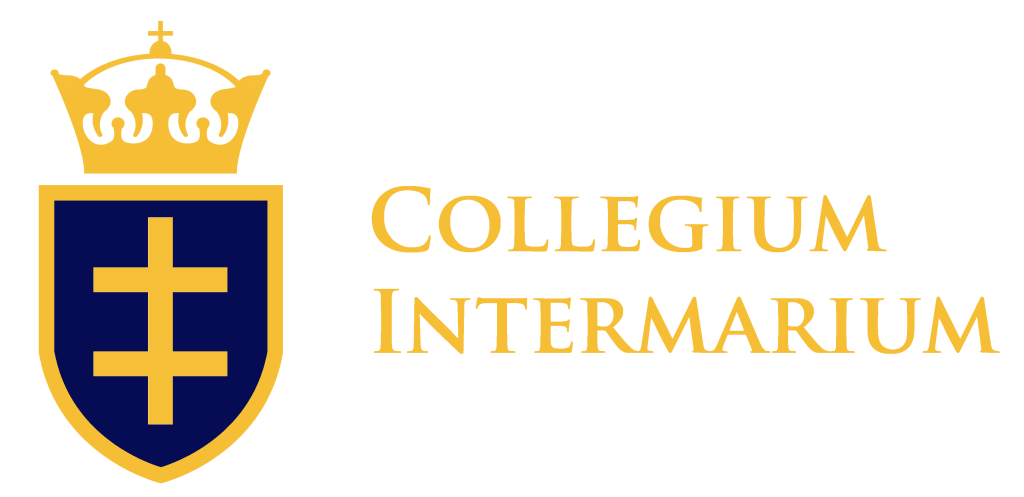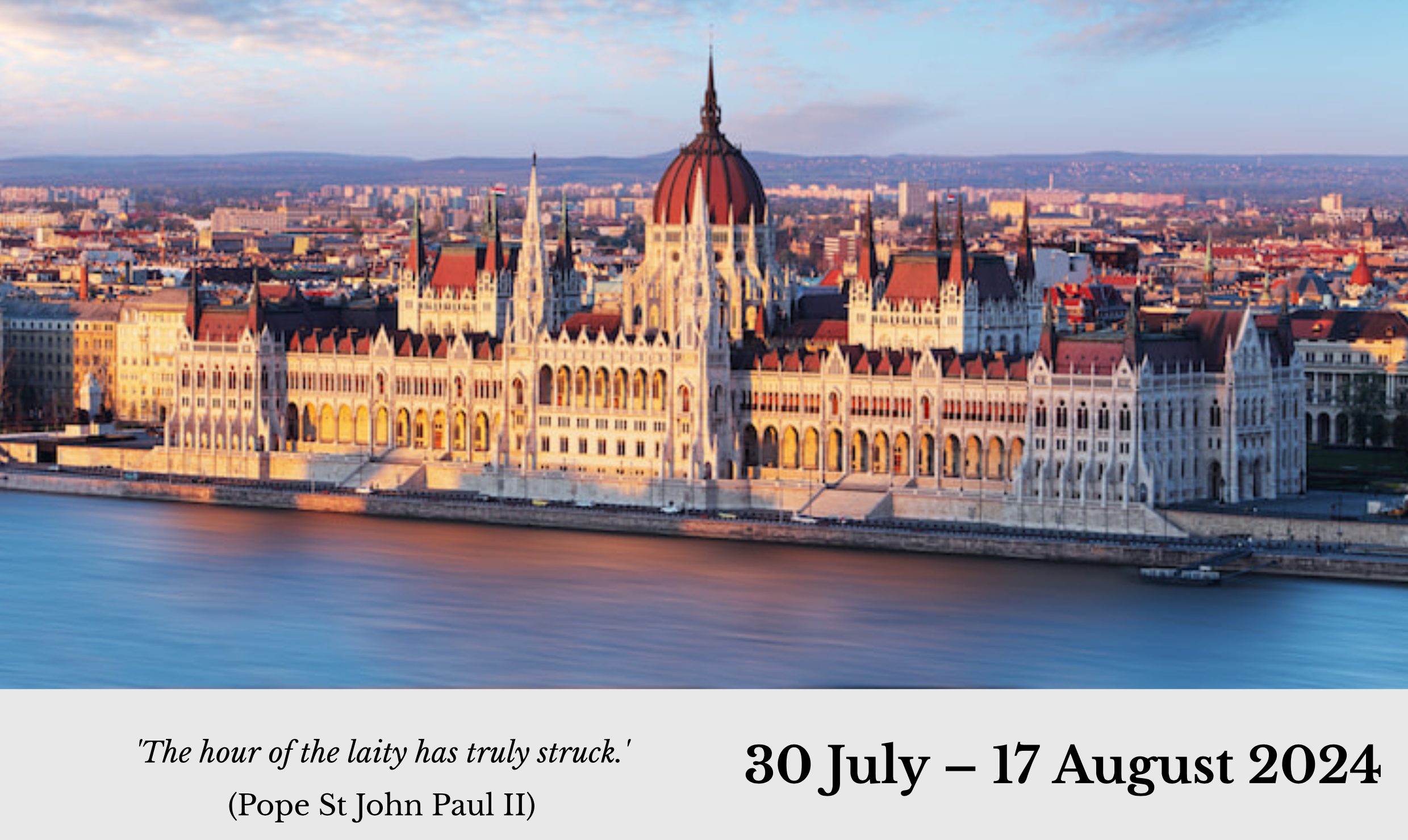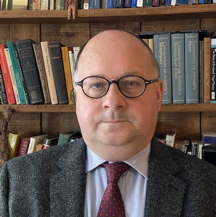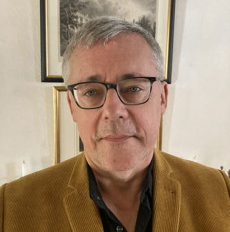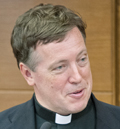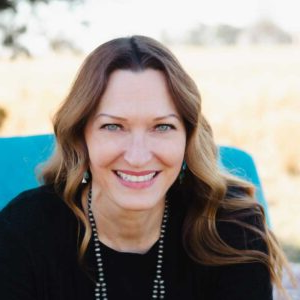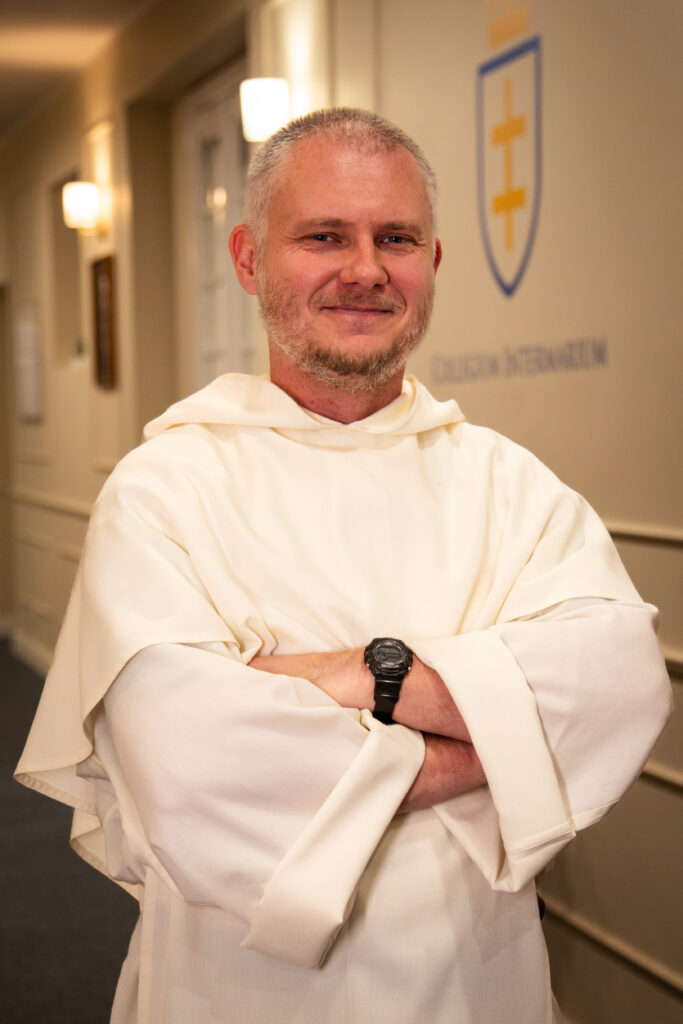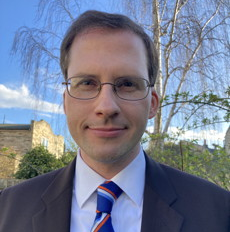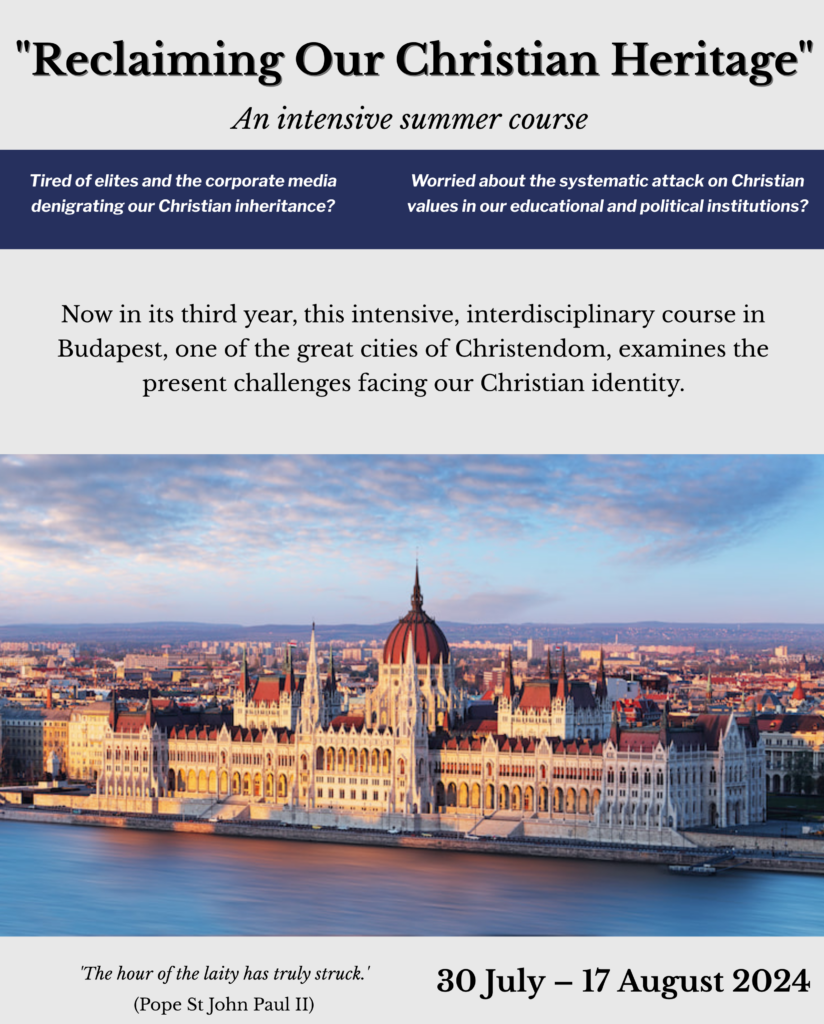Zapraszamy do uczestnictwa w „Szkole letniej” w Budepeszcie. W jej trakcie odbędzie się kurs, który prowadzony będzie w języku angielskim przez różnych wykładowców z Wielkiej Brytanii, Europy i Ameryki Północnej.
Planowane tematy seminariów:
* the Catholic worldview and the theory of rationality
* the international human rights movement: dangers and opportunities
* the founders’ vision of the European Union and its Christian ethos
* Christian faith and the birth of science as a self-sustaining enterprise
* sex, sexual identity, and gender: the perspective of psychology
* sex, sexual identity, and gender: the perspective of moral theology
* feminism: for or against women?
* demography and the future of the nuclear family
* the dangerous delusions of transhumanism
* understanding corporate media: an alternative Magisterium?
* NGOs and the threat of world government
* evolutionary theory, scientific research, and Christian belief: the current state of the question.
* the sacredness of life from conception to natural death
* the Chinese communist party and the evangelization of the Chinese people
* Prophecy in the Church: uses and abuses
